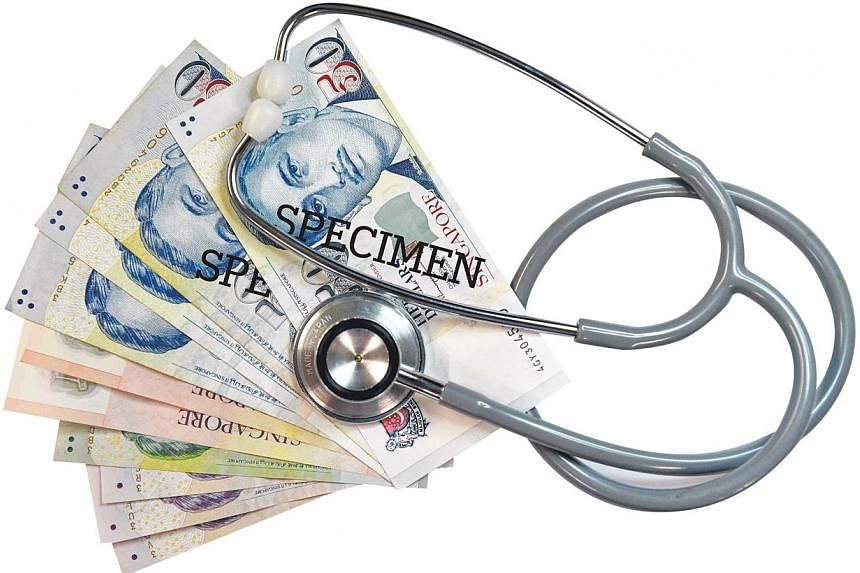When it comes to rising medical costs in private practice, doctors fall into two camps.
Some say medical progress comes at a price. Others believe their peers are taking advantage of the lack of price guidelines to overcharge patients.
The long-running debate has been reignited in The Straits Times Forum pages over the past week, sparked by a letter from neurologist Tang Kok Foo who wrote that the "fee-for-service" model gives doctors the incentive to provide more treatments than are strictly necessary.
In an interview with The Straits Times, Dr Tang, who is in the private sector, claimed that patients are "at a big disadvantage".
"You are in a very poor bargaining position," Dr Tang said. "You are sick; you just want to get better. It's not like shopping."
For example, a hysterectomy - or womb removal surgery - can be carried out for about $3,000.
But Dr Tang said some private sector doctors charge as much as $20,000. "A lot of patients don't know any better," he added. "They think the higher the price, the better the doctor."
In 1987, the Singapore Medical Association (SMA) drew up fee guidelines for GPs and specialists to inject transparency into private medical charges. These gave a range of charges for various services - such as a fee of between $10 and $20 for a 10-minute GP consultation.
But SMA withdrew these guidelines in 2007 after concerns that they contravened the Competition Act of 2006.
But other doctors say that with rapid advances in technology, the costs of certain procedures is bound to rise.
Robotic surgery, for instance, is increasingly popular with doctors in both the public and private sectors. Patients who undergo this tend to recover faster and suffer less scarring. But it can also cost thousands more than traditional surgery.
"The important thing is how cost-effective a new advance is," said retired plastic surgeon George Wong, who spent 40 years in private practice. "Is it worthwhile? Is it necessary? Patients are not in a position to know this. They want the latest and the best."
The onus is thus on doctors to be "judicious" in what they recommend to patients, he said.
But medical costs are not just driven up by patients' lack of knowledge, putting doctors in a position where they can charge what they like. Spiralling rental fees are a burden on GPs, said Dr Leong Choon Kit, who has colleagues that pay between $20,000 and $30,000 a month for an HDB unit which houses their practice.
Some doctors also practise "defensive medicine" - such as ordering a test in case they have missed something serious.
Dr Leong said: "It is the fear of the unknown - of the public and the practising doctor - that is the problem."


